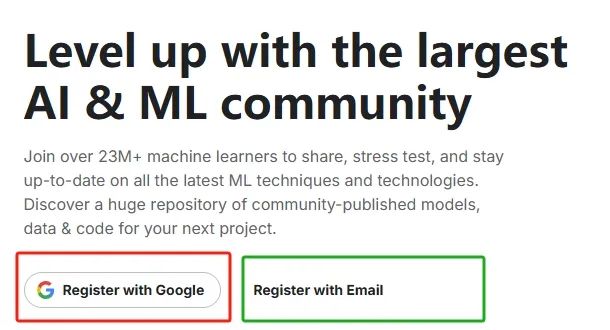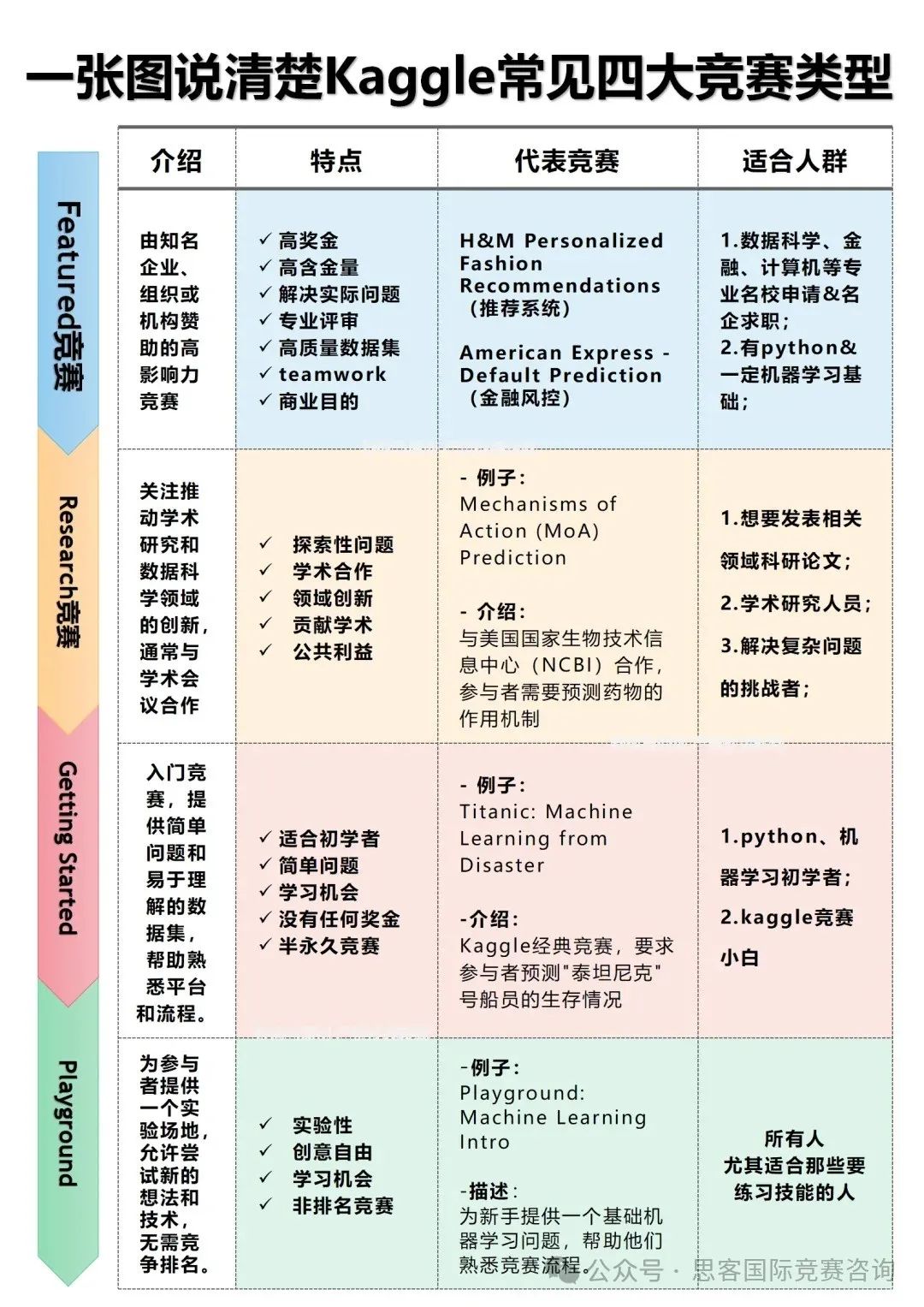2024.3.2
Professor Diaz: This week we will discuss issues faced by secondary school administrators. I'm referring to schools for teenage students. One such issue is students who change schools. Students change schools for many different reasons, the most common being a family move. On the discussion board, I want you to exchange ideas about what schools can do to make the transition to a new school easier for teenagers.
Claire: I think schools should assign new students a fellow student who can help them adjust. The "student buddy" can do things like make sure the new student can find the cafeteria or the right classrooms. For new students, it's a lot easier to ask a fellow student a question rather than ask a teacher or the principal. Paul: I would require new students to sign up for some school club or activity that meets outside of class. That way, new students would have an easy way to meet other students in a friendly environment. lt would give them a group to immediately identify with.
这是一道教育类开放性题目,要求同学讨论学校可以做什么让转校生适应更快。需要注意这道题目论述的是中学时期的转校生,而不是高一或者大一的新生,之后的论述内容不要偏离这个人群的特点。
一些可以参考的思路如下:
1.Orientation Programs:Schools can organize orientation programs or events before the start of the school year to introduce new students to the campus, faculty, and school resources. These programs can help teenagers feel more comfortable and prepared for the transition.
2.Buddy or Mentor Systems:Implementing a buddy or mentor system pairs incoming students with current students who can offer guidance, support, and friendship during the transition period. Having a peer mentor can help teenagers navigate the social and academic aspects of the new school.
3.Transition Workshops:Schools can offer transition workshops or seminars that provide practical tips and strategies for adjusting to a new school environment. These workshops can cover topics such as time management, study skills, and building positive relationships with peers and teachers.
4.Counseling Support:Schools should provide access to counseling support services for teenagers who may be experiencing anxiety, stress, or other emotional challenges related to the transition. School counselors can offer individual or group counseling sessions to help students cope with the changes and develop healthy coping strategies.
5.Peer Support Groups:Establishing peer support groups or clubs for new students can provide opportunities for teenagers to connect with others who are experiencing similar challenges. These groups can offer a safe space for teenagers to share their feelings, seek advice, and build friendships.
6.Academic Support Programs:Schools can offer academic support programs or tutoring services to help new students adjust to the academic expectations of the new school. These programs can provide additional support in areas where students may be struggling and help them build confidence in their academic abilities.
7.Inclusive School Culture:Creating an inclusive school culture that celebrates diversity and promotes acceptance can help new students feel welcome and valued. Schools should actively work to foster a sense of belonging among all students and discourage cliques or exclusionary behavior.
8.Regular Check-Ins:Teachers, counselors, and other school staff should conduct regular check-ins with new students to assess their progress, address any concerns, and offer additional support as needed. Building positive relationships with school staff can help teenagers feel more connected to the school community.
2024.3.6
Professor Achebe: This week, we’ll examine issues in education reform. For example, some educators think that by focusing mainly on foundational knowledge in subjects like reading, math, and science, schools are not fully preparing students for success in the workplace. These educators argue that soft skills-non academic skills such as empathetic or having a strong work ethic-should be part of the curriculum, with classroom time dedicated to developing these skills. Do you agree? Why or why not? Claire: I agree.
While students need a strong foundation in academic subjects, soft skills are important because they affect how well students do their work. If classroom time is set aside for these skills, students will take them seriously and their academic work will benefit. Teachers could design lessons so that students learn about a skill and then do role-playing activities with classmates. Paul: Soft skills are important, but I don't agree with using classroom time to work on them. I'm not sure how teachers would measure students' progress in developing these skills. If students' progress can't be measured on something being taught, I'm not sure if there's any point to teaching it.
三月的第二场考试依旧是教育类话题,要求谈论学校是否应该在教学术知识之外,加入软技能的教学。 这道题目要注意,题目有限定要从为学生未来的职业考虑。 其次,软技能这个概念很宽泛,需要能举一些例子。其实所谓 soft skills 指的就是interpersonal or people skills,包括常见的 Communication,Teamwork,Leadership,Problem-solving,Adaptability,Conflict resolution,Networking,Stress management。
一些支持学校教授学生 soft skills 的理由:
1.Employability:Soft skills are increasingly valued by employers and are often cited as essential qualities for job candidates. By teaching soft skills in schools, students are better equipped to meet the demands of the job market and enhance their employability.
2.Career Success:Soft skills are critical for career success and advancement. Employees who possess strong communication, teamwork, and leadership skills are more likely to excel in their roles, contribute to their organizations, and progress in their careers.
3.Workforce Preparation:Schools have a responsibility to prepare students for the realities of the workforce. Teaching soft skills helps students understand workplace dynamics, collaborate effectively with colleagues, and navigate professional relationships.
4.Adaptability:Soft skills such as adaptability, resilience, and problem-solving are essential for thriving in today's rapidly changing economy. By teaching these skills, schools empower students to adapt to new challenges, industries, and roles throughout their careers.
5.Professionalism:Soft skills contribute to professionalism and workplace etiquette. Students who understand how to communicate professionally, manage conflicts respectfully, and work collaboratively are better prepared to succeed in professional environments.
6.Leadership Development:Soft skills such as leadership, decision-making, and emotional intelligence are crucial for effective leadership. By teaching these skills, schools foster the next generation of leaders who can inspire others, drive positive change, and make meaningful contributions to their organizations and communities.
7.Global Competitiveness:In an increasingly globalized world, soft skills are essential for competing in the global marketplace. Students who possess strong communication, cultural competency, and adaptability skills are better positioned to succeed in diverse and multicultural work environments.
8.Personal Growth:Soft skills contribute to students' personal growth and development. They help students build confidence, self-awareness, and interpersonal relationships, leading to greater overall well-being and fulfillment in their professional lives.
一些反对教授学生 soft skills 的理由:
1.Limited Resources:Schools already face numerous demands on their resources, including time, funding, and personnel. Devoting significant resources to teaching soft skills may detract from core academic subjects and essential educational priorities.
2.Overemphasis on Testing:Many education systems prioritize standardized testing and academic achievement, often at the expense of broader skill development. Focusing on soft skills could divert attention away from preparing students for these assessments, potentially impacting their academic performance and future opportunities.
3.Role of Parents and Guardians:Soft skills are often best cultivated within the family environment, where parents and guardians play a primary role in instilling values, communication skills, and social behaviors. Schools should not overstep this role and should instead focus on their core mission of academic education.
4.Subjectivity and Evaluation Challenges:Soft skills are inherently subjective and challenging to assess objectively. Introducing them into the curriculum could lead to inconsistencies in evaluation and grading, potentially disadvantaging some students and undermining the fairness of the educational system.
5.Professional Development Responsibility:While soft skills are essential for success in the workplace, some argue that it is the responsibility of employers and vocational training programs to provide this training. Schools should focus on academic preparation, and students can develop soft skills through extracurricular activities, internships, and work experiences.
6.Curriculum Overcrowding:Adding soft skills training to an already packed curriculum could exacerbate issues of overcrowding and overwhelm students with too many competing demands. Schools must strike a balance between academic rigor and the development of broader skills and competencies.
7.Cultural and Societal Differences:Soft skills can be culturally and contextually dependent, with different societies valuing certain skills more than others. Introducing a standardized soft skills curriculum may not adequately address the diverse needs and preferences of students from various cultural backgrounds.
8.Teacher Training and Expertise:Teaching soft skills effectively requires specialized training and expertise on the part of educators. Many teachers may not have the necessary training or experience to teach these skills adequately, leading to inconsistencies and potential ineffectiveness in implementation.
2024.3.10
Professor Achebe: Next week we'll be talking about factors that contribute to human happiness. Surveys reveal that career satisfaction and the quality of personal relationships, such as with family and friends, are frequently identified as two important factors for happiness. Which of these two factors -career or relationships do you think most people would say has the greater impact on their overall happiness, and why?
Claire: I would say career satisfaction impacts overall happiness more. Having a fulfilling job gives you a sense of purpose and achievement that's hard to replicate elsewhere. It's a core part of your identity and self-worth. Relationships are vital too, but work dominates so much of our waking lives that its role in our well-being can't be overstated. Paul: Relationships are more impactful for happiness than career. We're social beings, so having strong bonds with family and friends fulfills a core need. Quality time with loved ones boosts positive emotions and provides a support system during tough times. That's why relationships trump career when it comes to overall well-being.
这道题目比较抽象,要求论述影响幸福的因素:到底是职业还是人际关系影响更大。 这个的确容易引起选择困难症。其实托福作文并不在乎一个正确答案,言之有理更为重要。所以不要纠结,选择一个自己容易说清楚的立场就行。 一些支持人际关系影响更大的理由:
1.Social Connection and Support:Relationships, whether they be with family, friends, or romantic partners, provide social connection and support, which are fundamental to human well-being. Feeling connected to others, having someone to share life experiences with, and receiving emotional support during challenging times contribute significantly to overall happiness.
2.Fulfillment and Meaning:Meaningful relationships often bring a sense of purpose and fulfillment to people's lives. Sharing experiences, creating memories, and building a life together with loved ones can provide a deep sense of meaning and satisfaction that extends beyond individual achievements or career success.
3.Emotional Well-Being:Positive relationships are closely linked to emotional well-being. Feeling loved, appreciated, and understood by others can boost self-esteem, reduce stress, and increase feelings of happiness and contentment.
4.Balanced Perspective:While a successful career can bring financial stability and professional accomplishments, it may not necessarily translate into lasting happiness if other aspects of life, such as relationships, are neglected. Maintaining a balanced perspective and prioritizing relationships alongside career aspirations often leads to greater overall fulfillment and happiness.
5.Longevity and Health:Research consistently shows that strong social connections and supportive relationships are associated with better physical health and longevity. Investing in relationships and nurturing social bonds can have positive effects on both mental and physical well-being, contributing to overall happiness and quality of life.
一些支持职业影响更大的理由:
1.Sense of Achievement:Achieving career milestones and success can bring a deep sense of personal accomplishment and fulfillment. Advancing in one's career, reaching professional goals, and making tangible contributions to their field can lead to a profound sense of satisfaction and happiness.
2.Financial Stability:A successful career often correlates with financial stability and security, which can alleviate stress and anxiety related to money. Having a steady income, being able to provide for oneself and loved ones, and achieving financial goals can enhance overall happiness and well-being.
3.Independence and Autonomy:A fulfilling career can provide individuals with a sense of independence, autonomy, and control over their lives. Making decisions, taking charge of one's professional path, and having a sense of purpose in one's work can contribute to feelings of empowerment and happiness.
4.Personal Growth and Development:Careers offer opportunities for continuous learning, skill development, and personal growth. Engaging in meaningful work, tackling new challenges, and honing one's talents and abilities can lead to a greater sense of fulfillment and happiness.
5.Identity and Self-Expression:For many people, their career is closely tied to their identity and self-expression. Pursuing a career aligned with their passions, values, and interests allows individuals to express themselves authentically and contribute meaningfully to their chosen field, leading to greater overall happiness.
6.Social Recognition and Status:Career success often comes with social recognition, praise, and status within one's professional community. Being respected and admired by peers, colleagues, and society can boost self-esteem and contribute to feelings of worthiness and happiness.
7.Work-Life Balance:Achieving a healthy work-life balance is essential for overall happiness. While relationships play a significant role in achieving this balance, some individuals may prioritize their career as a means of personal fulfillment and satisfaction, finding joy and purpose in their work.
2024.3.16
Professor Achebe: In recent years, there has been ongoing debate regarding the relevance and necessity of public libraries. Some argue that in the digital age, where information is readily available online, libraries may have lost their significance. What are your thoughts on the importance of libraries today? Do you believe cities should continue to maintain public libraries? Claire: Libraries were relevant when books were the main source of knowledge and people couldn't afford personal libraries. But in our digital world, public funding for libraries is an unnecessary expenditure.
With so much information online, who needs physical books? Very few people read anymore. I haven't stepped foot in a library for years. Paul: Public libraries are still valuable community resources. While digital information is widespread, libraries offer engaging programs that inspire kids' love of reading. From storytimes to summer reading clubs, these activities get children excited about books in a way websites can't match. Libraries nurture the next generation of readers - we shouldn't abandon them yet.
这道题目要求论述公共图书馆在当今社会是否还有维持的必要。注意题目给出的背景条件是当下的网络让信息很容易获取了。同学要在这个背景下来讨论当今图书馆的价值。 支持维护公共图书馆的一些理由:
1.Equal Access to Information:Public libraries ensure that everyone, regardless of socioeconomic status or access to technology, has equal access to information and resources. Not everyone can afford internet access or digital devices, and libraries provide a free and inclusive space for learning and exploration.
2.Community Hub:Public libraries serve as community hubs where people can gather, collaborate, and engage in lifelong learning. They offer a wide range of services and programs, including workshops, lectures, book clubs, and children's storytimes, fostering social connections and a sense of belonging.
3.Expert Assistance:Librarians are trained professionals who can help users navigate complex information landscapes, evaluate sources, and access reliable information. They provide personalized assistance and guidance to patrons, empowering them to make informed decisions and enhance their digital literacy skills.
4.Digital Inclusion:While digital resources are increasingly prevalent, there are still digital divides that exist, particularly among marginalized communities. Public libraries bridge this gap by providing access to computers, internet, and digital resources, helping to promote digital inclusion and reduce disparities.
5.Preservation of Cultural Heritage:Public libraries serve as repositories of cultural heritage, preserving and providing access to historical documents, archives, and rare materials. They play a crucial role in safeguarding collective memory and ensuring that future generations have access to our shared cultural heritage.
6.Quiet Spaces for Study and Reflection:Libraries offer quiet spaces for study, research, and reflection, providing an alternative to the distractions and noise of modern life. They promote concentration, focus, and intellectual engagement, fostering a conducive environment for learning and creativity.
7.Physical Books and Collections:While digital resources offer convenience and accessibility, many people still prefer physical books and enjoy browsing library collections. Public libraries curate diverse collections of books, magazines, and multimedia materials, catering to a wide range of interests and preferences.
8.Educational Support:Public libraries support education at all levels, from early literacy programs for children to resources for lifelong learning and professional development. They partner with schools, universities, and community organizations to supplement formal education and provide additional resources and support.
反对维护公共图书馆的理由:
1.Cost Efficiency:Maintaining public libraries can be costly for cities, requiring funds for staff salaries, facility maintenance, and acquisitions of physical materials. With the availability of free online resources, some may argue that the cost of operating libraries outweighs their benefits.
2.Declining Usage:With the widespread availability of digital information and resources, the usage of public libraries may be declining. Some argue that fewer people are visiting libraries to borrow books or access information, making them less relevant in today's digital landscape.
3.Digital Access:Many people now have access to digital devices and the internet, allowing them to access information and resources online from anywhere. With digital access becoming more widespread, some may question the need for physical library spaces.
4.Environmental Impact:Maintaining physical libraries requires resources such as paper, ink, and energy for heating and cooling. Some may argue that promoting digital resources over physical materials could be more environmentally sustainable in the long run.
5.Space Reallocation:Public library buildings occupy valuable real estate in cities. Some argue that repurposing these spaces for other community needs, such as affordable housing, community centers, or green spaces, could better serve the needs of residents.
6.Changing Role of Libraries:In the digital age, the role of libraries is evolving beyond traditional book lending and information access. Some argue that libraries should adapt to changing needs by focusing on providing digital literacy programs, maker spaces, and other innovative services rather than maintaining extensive physical collections.
7.Accessibility Concerns:While digital resources offer convenience and accessibility for many, some argue that there are still digital divides that exist, particularly among marginalized communities. Closing public libraries could further exacerbate these disparities, limiting access to information and resources for those without digital access.
8.Competition with Other Services:Cities may face competing demands for limited resources, including funding for education, healthcare, transportation, and public safety. Some may argue that reallocating resources from public libraries to other essential services could better address pressing community needs.
2024.3.23
Dr. Achebe: This week, we'll be exploring the dynamics of entrepreneurship, particularly focusing on whether entrepreneurs should collaborate with family members when starting a business or if it's preferable to avoid such partnerships. Many entrepreneurs face this dilemma due to the potential benefits of trust and shared vision with family, but also the risks of conflicts and business complications. What are your thoughts on this? Do you believe it's best for entrepreneurs to start a business with family members?
Claire: I don't think it's a good idea for entrepreneurs to go into business with family members. While you may have trust and share the same vision, family members tend to think too much alike. This limits new perspectives and innovation. There's also a higher risk of conflicts and messy situations arising between relatives that could hurt the business. Andrew: Working together with family members can really strengthen the family bond and shared goals. My uncle and cousins started a restaurant, and seeing them collaborate with that level of trust and commitment is inspiring. Though conflicts may arise, if you can resolve them, it'll make the family ties even stronger in the end.
这是一道工作类话题,要求探讨是否支持和家人一起创业。 对于没有工作经验的同学来说,可能构思会碰到困难。但是同学可以结合自己身边亲人的经历,或者在影视节目中了解的信息来帮助自己构思。
一些参考的思路:
Arguments in favor of starting a business together with family members
9.Shared Values and Vision:Family members often share common values, goals, and a shared vision for the business. This alignment can facilitate decision-making and create a unified direction for the company.
10.Trust and Loyalty:There is a built-in level of trust and loyalty among family members, which can serve as a solid foundation for the business. This trust can foster open communication, collaboration, and a sense of commitment to the success of the venture.
11.Effective Communication:Family members typically have an established communication style and are familiar with each other's strengths, weaknesses, and communication preferences. This can lead to more efficient communication and problem-solving within the business.
12.Long-Term Perspective:Family businesses often have a long-term perspective, focusing on generational sustainability and legacy building. This can lead to more strategic decision-making and investment in the future of the company.
13.Cost Savings and Resource Sharing:Starting a business with family members can result in cost savings and resource sharing. Family members may be willing to invest personal funds, share equipment or facilities, and provide other forms of support to help the business succeed.
14.Emotional Support:Building a business with family members can provide emotional support during both the highs and lows of entrepreneurship. Family members can offer encouragement, motivation, and a sense of camaraderie throughout the journey.
15.Family Bonding and Togetherness:Working together on a shared goal can strengthen family bonds and promote a sense of togetherness. Building and growing a business can become a shared passion and source of pride for the entire family.
16.Control and Decision-Making:Family businesses often have greater control over decision-making and strategic direction compared to businesses with external stakeholders. This autonomy can allow family members to align the business with their values and priorities.
Arguments against starting a business together with family members
17.Conflict of Interest:Mixing family and business can lead to conflicts of interest, as personal relationships may influence business decisions. Conflicts over money, power, and control can strain familial relationships and negatively impact the business.
18.Communication Challenges:Family dynamics may hinder effective communication within the business. Issues such as favoritism, miscommunication, and unresolved conflicts can arise, leading to misunderstandings and inefficiencies.
19.Lack of Professionalism:Family businesses may struggle to maintain a professional work environment, as personal relationships can blur the lines between professional and personal interactions. This can lead to a lack of accountability, professionalism, and adherence to business standards.
20.Limited Skill Diversity:While family members may bring complementary skills and expertise to the business, there may also be limitations in terms of skill diversity. Relying solely on family members for talent and expertise may restrict the company's ability to innovate and adapt to changing market demands.
21.Financial Risks:Mixing family finances with business finances can be risky, as personal investments and debts may become intertwined with the business. Financial disagreements or failures in the business can strain family finances and lead to financial instability.
22.Difficulty in Separating Roles:It can be challenging for family members to separate their roles as business partners from their roles as family members. This can lead to conflicts over authority, decision-making, and boundaries within the business.
23.Limited External Perspectives:Family businesses may struggle to seek outside perspectives and expertise, as family members may be reluctant to bring in external advisors or consultants. This can limit the company's ability to innovate, grow, and adapt to changing market conditions.
24.Impact on Personal Relationships:Business challenges and disagreements can spill over into personal relationships, leading to strained family dynamics and resentment. The stress of running a business together can put a strain on familial bonds and affect overall well-being.













